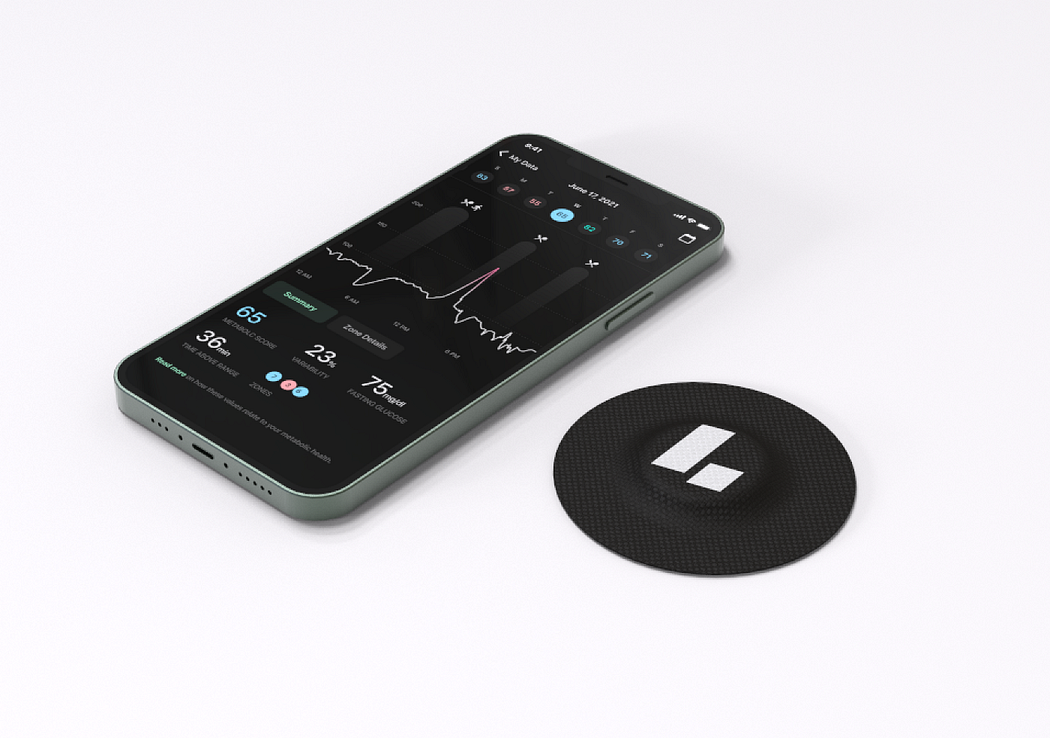
Building an NPS unicorn: How we plan to impact 1 billion people through member experience
Most companies, when asked, would say they are committed to a great customer experience. But what does that really mean? How does it influence daily decision-making and long-term strategy?
Those are the questions that we asked ourselves when we came up with the company goal of becoming an NPS Unicorn — a company with an NPS score higher than 90. It’s an audacious goal that we set early in our company’s growth — (we’re about two years old and still in closed beta) — and only a handful of large companies have achieved it.
But, we believe that by orienting around member experience now, we can establish a company culture that prioritizes member experience in the long term, even as we scale toward our ultimate goal of reversing the metabolic crisis. Our overarching goal is to impact a billion people by creating awareness about the importance of metabolic health, and giving people the tools — content and products — to make meaningful behavioural changes to improve their metabolic health.

The Levels app and a CGM (continuous glucose monitor) gives people insight about their metabolic health.
What is an NPS Unicorn?
To back up: NPS stands for Net Promoter Score, a simple and standardized measure of customer satisfaction that works across industries. At some point in a customer journey, after a person has used a product for an initial period, a company will ask its customer one question: Considering your complete experience with our company, how likely would you be to recommend us to a friend or colleague?
Customers answer by choosing a ranking from 1–10. The overall company score is found by subtracting the percentage of total responses that were Detractors, (people who gave you a 6 or below), from the percentage of total responses that were Promoters, (scores of 9 or 10). As such, scores can range from -100 to 100. For example, if 70 percent of respondents were Promoters and 10 percent were Detractors, your company score would be 60. People who give you a 7 or 8 are considered passive and are ignored for purposes of the score. Average scores vary by industry, but are generally in the 30s and 40s.
The inspiration for focusing on a high NPS score came from watching John Foley, the CEO of Peloton, at a 2017 Code Conference. He showed the NPS scores of top companies — Apple (66), Netflix (54), Nike (30). Only three companies that had scores above 90 — Tesla, Warby Parker, and Peloton. He talked about orienting every person in his company around being the only company to reach 100.
NPS scores are imperfect, and why some companies score higher than others is the result of a complex web of factors. The larger a company’s scale, and the longer a company has been around, the more likely it is to have detractors. This may explain why even beloved companies, like Apple, score below 70 and why anything above 70 is considered very high.
After watching Foley talk about striving for an NPS of 100, I thought, “How can Levels foster so much customer appreciation and love for what we’re doing that we fall into that club of being 90 and above?”
Why Aim for NPS Unicorn Status?
We’re out to solve a significant problem — we want to reverse the metabolic health crisis, globally. To do that, we need to reach at least a billion people with our message, if not our tools. Making that kind of an impact isn’t about revenue; it’s about a movement.
Very few companies are approaching business this way — most focus on dollars and cents instead of focusing on how people feel about their products.

If our incentives are to create the best possible experience for Members and not to drive revenue to achieve growth, I think the dynamic changes.
There are many ways to reach the goal of impacting a billion people — massive marketing spend, for instance. Our goal is to get there as organically as possible through community. And, it’s important to note that community will mean different things to different people — some will only want to be part of a micro-community, and others will want to be part of a larger community. But, building any kind of community requires that people have a positive experience that they want to share with others.
A positive member experience — which encompasses not only the product experience, but also sign-up, support, content, and any interaction with a company — can also help to overcome any inherent friction in a product. Our program currently requires people to apply a continuous glucose monitor and log their meals to see their personalized bio-feedback. Imagine trying to get people to overcome that friction with a member experience that yielded an NPS score of 30 — it would be a Sisyphean endeavor.
As Sam Corcos, CEO and co-founder or Levels, often says, we’re ultimately a trust company. That’s why we lean so heavily on deeply reported editorial content instead of content marketing. It’s why we sincerely believe that you own your data, and we have a privacy policy that reflects those values.
Trust and a Customer Satisfaction Score are not the same thing, but they are related. It’s much easier to have a member that recommends your product to someone, if they trust you. As well, people are also more forgiving of a less-than-perfect experience, especially when a company is an early-stage startup that is still in beta.
What We’re Doing to Keep Our NPS Score High
Our average NPS score in 2021 is 60, and that’s in closed beta. Our product is still very much in development, and it’s not perfect. But, what we’re finding — with our beta members’ help — is that the right product and experience helps people to get insight about their biometric data which, ultimately, unlocks better health over time.

Currently, we focus on improving our product and Member experience in several ways, which include:
- Constantly improving our product — How well a product serves member needs is at the core of the NPS score. We have an extremely high development velocity, with new releases nearly every week, driven by deep analysis of member feedback — (more on that below). Our app interprets data from a continuous glucose monitor to help members understand the impact of food and lifestyle decisions on their health. The better we are at providing clear, actionable insights for members, the more likely people are to have a great experience and to recommend us to their friends.
- Incredibly attentive support — One analysis of NPS scores found that the perception of good support from a company boosted NPS scores by 50%-70%. Each person on our Support and Operations team takes a personal, attentive and engaged approach to every interaction. We respond to 67% of our support inquiries within an hour, and our CSAT rating is consistently above 90%.
- Listening to our Members’ feedback — We close the loop. Until recently, we spoke with every single member, (and still talk to a high percentage of them); we track all that feedback. Because we have a very high development velocity, we can turn around new features that members have suggested quickly. We even take ideas outside of the product. A Member recently suggested a beneficial packaging change, and we not only implemented it within a week, but also sent him a thank-you gift for the suggestion.
- Owning our failures — I mentioned that we don’t speak to every Member, but we reach out to everyone who gives us a low NPS score. We want to hear where we’ve disappointed Members and what we can do to improve the product and experience.
- Delighting members — We’re generous in our gratitude. One of our team members sends personalized flower bouquets to anyone who has helped us, either with introductions or product feedback — (the internal Slack channel #flowers for showcasing the bouquets is a company favorite). As well, we send books about metabolic health to our Members. We ship high-quality swag unexpectedly. We replace sensors immediately, no questions asked. While the degree to which we do this may not scale as we reach millions of users, the spirit of delighting members is an essential foundational principle.
- Creating a community and spotlighting members — We’re fortunate that our members love to share their Levels experience on social media, and we dedicate a lot of our social real estate to re-posting their experiences. We highlight member stories on our blog. We invite members to our internal team meetings, (Friday Forums), on a weekly basis. We feature Members in our brand photography. We do regular community calls with various team members, where we solicit feedback about our content, community, business model and product.
Can a High NPS Scale?
It’s easy to look at things like fast support turnaround, swag, or personalized flowers and think, “Well, those are fine for an early, well-capitalized startup, but they’ll never scale.” But, those are all just current iterations of the larger goal of creating a meaningful member experience through our product, platform and community. If we can create a health platform that is meaningful to people, and one that provides them with deep value to live a healthier life, that’s step one. If we then focus on community and member experience at scale, that’s step two.
If we go back to those existing NPS unicorns — Tesla, Peloton, Warby Parker — they all maintained high NPS scores, even at a significant scale. Starbucks has an NPS of 77, with more than 20,000 in-person retail locations. High NPS at scale is, in fact, possible with the proper focus.
Conclusion
The point of the NPS Unicorn goal is to make sure that, as we scale in employees and Members, we maintain an incredible focus on Member experience. The NPS score is certainly not the only metric of success for Levels, but it’s a valuable way to hold ourselves accountable for those intentions. It’s also a way of testing the hypothesis that satisfied membership helps to build a movement, which enables a company to reach a billion people, and beyond.

What Levels does—and why
Inside Levels

Take control of your metabolic health
Levels helps you see how food and lifestyle affect your health through macro tracking, habit-building, and customized insights and advice. Levels members can also incorporate biomarker data like real-time glucose and metabolic blood testing for an even more personalized experience. Click here to get started with Levels.



